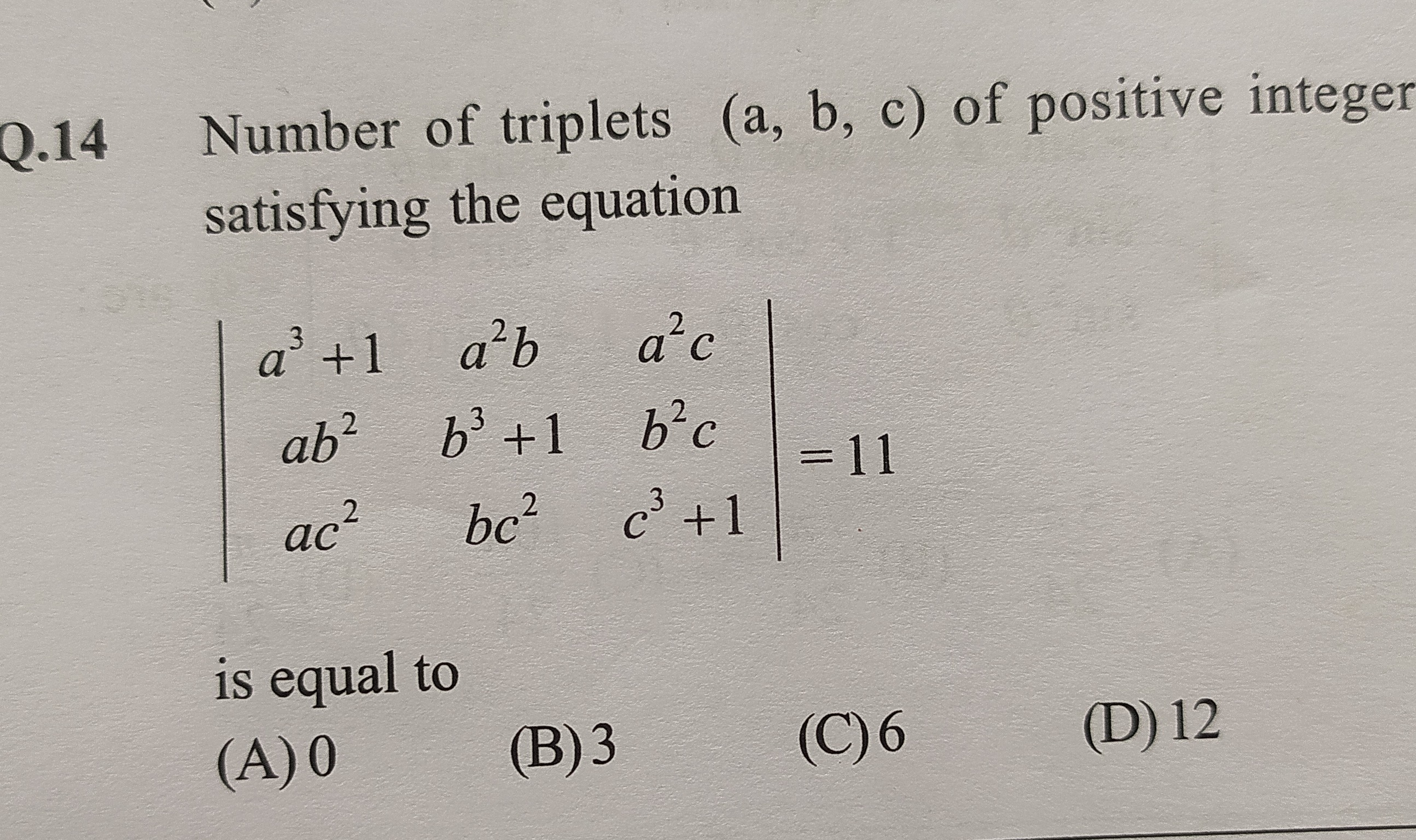Question
Question: Number of triplets (a, b, c) of positive integer satisfying the equation $\begin{vmatrix} a^3+1 & a...
Number of triplets (a, b, c) of positive integer satisfying the equation
a3+1ab2ac2a2bb3+1bc2a2cb2cc3+1 = 11
is equal to

0
3
6
12
3
Solution
Solution:
We are given
a3+1ab2ac2a2bb3+1bc2a2cb2cc3+1=11.Step 1. Expand the Determinant
Expanding the determinant (by cofactor expansion or simplifying smartly) one obtains:
Determinant=a3+b3+c3+1.Step 2. Set Up the Equation
We have,
a3+b3+c3+1=11⟹a3+b3+c3=10.Step 3. Find Positive Integer Solutions
Since a, b, and c are positive integers, their cubes are:
13=1,23=8,33=27,etc.To sum to 10, the only possibility is:
1+1+8=10.Thus, one of the numbers must be 2 (since 23=8) and the other two must be 1 (since 13=1).
The ordered triplets are:
(2,1,1),(1,2,1),(1,1,2).Step 4. Count the Triplets
There are exactly 3 triplets.
Explanation (Minimal):
The determinant simplifies to a3+b3+c3+1. Setting this equal to 11 gives a3+b3+c3=10. Since the only cubes below 10 are 1 and 8, we must have two 1's and one 8, leading to three ordered triplets.
